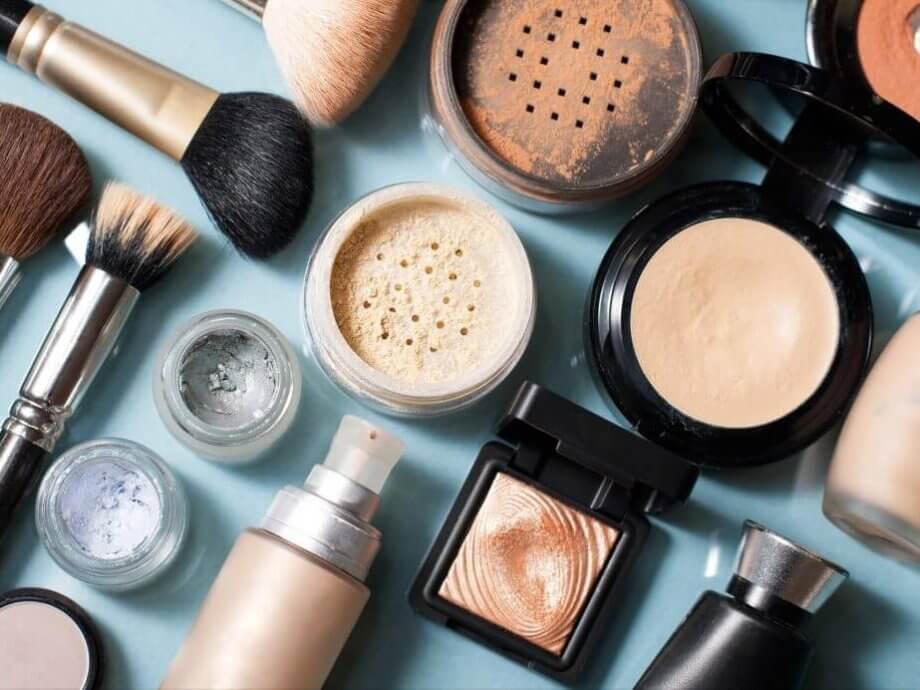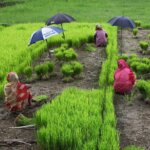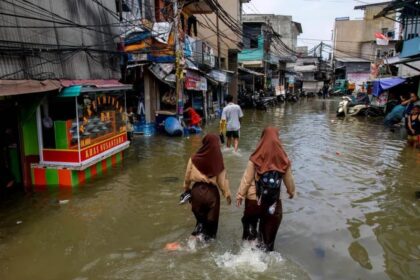The Growing Threat of Smuggled and Counterfeit Cosmetics in Bangladesh
Bangladesh’s cosmetics and skincare industry is at a crossroads. Despite rapid growth in local production and rising consumer demand, the sector faces a mounting crisis: the unchecked influx of smuggled and counterfeit products. Industry leaders, policymakers, and experts warn that unless stricter controls and comprehensive reforms are implemented, the domestic cosmetics industry risks being undermined, with far-reaching consequences for the economy, public health, and the country’s export ambitions.
- The Growing Threat of Smuggled and Counterfeit Cosmetics in Bangladesh
- How Smuggled and Counterfeit Cosmetics Enter the Market
- The Scale and Impact of the Illicit Cosmetics Trade
- Public Health Risks: The Hidden Cost of Counterfeit Cosmetics
- Regulatory Gaps and Policy Challenges
- Industry Voices: Calls for Reform and Support
- Export Potential: Untapped Opportunities in Halal and Herbal Cosmetics
- Local Brands on the Rise: Successes and Ongoing Challenges
- Broader Economic Context: The Role of the Cosmetics Industry
- Government Response and the Path Forward
- In Summary
How Smuggled and Counterfeit Cosmetics Enter the Market
Smuggled cosmetics, often referred to as “luggage party” goods, enter Bangladesh through a variety of channels. Airline crew, international travelers, and even business owners themselves bring in branded products from countries such as the USA, UK, India, Malaysia, and Thailand, often under the guise of personal use or gifts. These products are then sold to retailers, bypassing official import channels and evading taxes and regulatory scrutiny.
According to investigative reports, this practice is widespread. Retailers in major markets like Dhaka’s Bashundhara City and Gulshan 1 openly admit to sourcing much of their inventory from these informal networks. The appeal for consumers is twofold: the perception of higher quality and the allure of foreign brands. However, this parallel market not only deprives the government of significant revenue but also creates an uneven playing field for local manufacturers.
Counterfeit cosmetics—fake products that mimic popular brands—are another major concern. These items are often produced in unregulated factories, using substandard or even harmful ingredients. The lack of effective oversight means that such products can easily find their way onto store shelves and into consumers’ hands.
The Scale and Impact of the Illicit Cosmetics Trade
The financial impact of smuggled and counterfeit cosmetics is staggering. Official figures from the National Board of Revenue (NBR) indicate that color cosmetics imports were valued at around Tk 500 crore in the last fiscal year. However, industry associations estimate the true figure is closer to Tk 1,600 crore when under-invoicing and weight manipulation are accounted for—suggesting that approximately Tk 1,100 crore is being dodged in taxes annually.
Industry insiders claim that up to 70% of trading in the sector is conducted through black marketing, with smuggled and counterfeit goods dominating the market. The Bangladesh Cosmetics and Toiletries Importers Association estimates that the volume of products brought in through “luggage party” methods alone is at least Tk 500 crore. This has led to a sharp decline in demand for legally imported cosmetics and has stifled the growth of local brands.
Local manufacturers, despite increasing their production capacity, find themselves at a disadvantage. While all cosmetics importers together paid only Tk 17 crore in revenue in the fiscal year 2024-25, a single domestic manufacturer contributed more than Tk 100 crore in taxes. This disparity not only discourages investment in the local industry but also threatens to push Bangladesh back into import dependence.
Public Health Risks: The Hidden Cost of Counterfeit Cosmetics
Beyond the economic implications, the proliferation of counterfeit and substandard cosmetics poses serious health risks. Fake products often contain harmful chemicals, unapproved colorants, or microbial contaminants that can cause skin irritation, allergic reactions, and even long-term health problems. In Bangladesh, where regulatory oversight is weak and consumer awareness is limited, the dangers are amplified.
Academic research highlights the prevalence of skin diseases linked to the use of contaminated or adulterated cosmetics. Poor manufacturing practices, inadequate quality control, and the use of unsafe raw materials contribute to the problem. The lack of mandatory registration and quality control systems for cosmetics has allowed unregulated factories to flourish, further endangering public health.
Consumers are often unaware of the risks. Many are lured by low prices or the promise of foreign brands, not realizing that the products they purchase may be counterfeit or expired. The Directorate of National Consumers Right Protection (DNCRP) regularly receives complaints about adverse reactions to cosmetics, but enforcement remains a challenge. As Mohammed Alim Akhter Khan, director general of the DNCRP, notes, repeat offenders often continue their illegal activities despite being fined, highlighting the need for stronger deterrents.
Regulatory Gaps and Policy Challenges
Bangladesh’s regulatory framework for cosmetics is fragmented and outdated. Unlike neighboring countries such as India and China, which have robust systems for product registration, quality control, and import regulation, Bangladesh lacks comprehensive standards and enforcement mechanisms. The Bangladesh Standards and Testing Institution (BSTI) and the Directorate General of Drug Administration (DGDA) oversee licensing, but the process is often slow and burdensome for local manufacturers, while imported products face fewer hurdles.
This regulatory disparity puts domestic producers at a disadvantage. For example, obtaining a certification mark (CM) license for locally produced goods can take up to 46 working days, compared to just a few days for imported products. Additionally, only a fraction of the products mandated by BSTI for licensing require a CM license for import, leaving many cosmetics unregulated.
Customs duties and supplementary taxes further complicate the landscape. Local manufacturers face higher duty burdens compared to importers, making it difficult to compete on price. The lack of incentives, subsidies, and streamlined export processes also hinders the global expansion of Bangladeshi brands.
Industry Voices: Calls for Reform and Support
At a recent seminar in Dhaka, industry leaders and experts outlined a series of recommendations to address the crisis. Jamal Uddin, secretary of the Association of Skin Care and Beauty Products Manufacturers and Exporters of Bangladesh, emphasized the need for policy support to help local producers grow and offer quality products at affordable prices. He called on the government to:
- Encourage global brands to manufacture in Bangladesh by improving access to raw materials
- Raise tariffs on finished imported cosmetics to protect local industry
- Reduce import duties on essential raw materials, as 90% of these are imported at high cost
- Strengthen enforcement against illegal consignments and counterfeits
MS Siddiqui, former vice-president of the International Business Forum of Bangladesh, argued that with the right government support, Bangladesh could transform its cosmetics sector into a leading export earner. He advocated for lower tariffs on raw materials, higher duties on finished imports, and robust measures to stop smuggling and counterfeiting.
Other industry figures echoed these sentiments, highlighting the need for financial incentives, export promotion programs, and regulatory assistance to help local manufacturers expand their international reach. They also stressed the importance of improving the ease of doing business and adopting international quality standards such as Good Manufacturing Practices (GMP).
Export Potential: Untapped Opportunities in Halal and Herbal Cosmetics
Despite the challenges, Bangladesh’s cosmetics industry holds significant export potential, particularly in niche markets such as halal and herbal products. With a large Muslim population and growing global demand for ethical and hygienic cosmetics, Bangladesh is well-positioned to become a major player in the international halal cosmetics market.
The global halal cosmetics market was valued at $42.39 billion in 2023 and is projected to reach $115.03 billion by 2032. Bangladesh’s share, while currently modest, is expected to grow as awareness and certification processes improve. The Bangladesh Standards and Testing Institution (BSTI) has established a national halal laboratory to provide internationally recognized certification, a crucial step for accessing global markets.
Herbal and natural cosmetics are also gaining popularity, both domestically and abroad. The country’s natural cosmetics market is expected to generate $181.30 million in revenue in 2024, with steady growth projected in the coming years. Local companies like Mumtaj Herbal Products are already exporting herbal beauty items and seeking further certification to enhance their competitiveness.
Local Brands on the Rise: Successes and Ongoing Challenges
In recent years, local brands have made significant inroads into the Bangladeshi cosmetics market. Companies such as Unilever, Keya Cosmetics, Square Toiletries, Kohinoor Chemical Company, and others have invested in advanced manufacturing technologies and research, producing a wide range of products that cater to diverse consumer needs.
These efforts have helped shift consumer perceptions, with more middle- and upper-class buyers embracing “Made in Bangladesh” cosmetics. The industry now employs over 100,000 people and is poised to generate even more jobs as it expands. However, challenges remain, including securing funding, adopting new technologies, and navigating complex regulatory requirements.
High import duties on raw materials, limited distribution channels, and quality concerns continue to hinder growth. Local manufacturers also face stiff competition from smuggled and counterfeit goods, which often undercut prices and erode consumer trust.
Broader Economic Context: The Role of the Cosmetics Industry
The cosmetics and personal care sector is a significant contributor to Bangladesh’s economy, with an annual market size exceeding Tk 24,000 crore. As the country seeks to diversify its export base beyond readymade garments, the cosmetics industry offers a promising avenue for growth, foreign currency earnings, and employment generation.
However, the broader economic environment presents its own set of challenges. According to the World Bank, Bangladesh’s economy is projected to grow by 4.1% in FY25, amid subdued investment and industrial activity. High inflation, political uncertainty, and supply constraints have dampened consumer spending and investor confidence. In this context, strengthening the domestic cosmetics industry could play a vital role in boosting economic resilience and reducing import dependence.
Government Response and the Path Forward
The Bangladeshi government has taken some steps to address the crisis. The recently passed Drugs and Cosmetics Act aims to regulate the manufacturing, import, and sale of cosmetics, requiring producers to obtain licenses from both the BSTI and the DGDA. Customs authorities have also introduced measures to limit the amount of duty-free goods that travelers can bring into the country.
However, enforcement remains a major challenge. Corruption, inadequate resources, and a lack of coordination between agencies have hampered efforts to crack down on smuggling and counterfeiting. Industry stakeholders argue that fines alone are insufficient and call for more robust penalties, better monitoring, and greater public awareness.
To unlock the full potential of the cosmetics industry, experts recommend a comprehensive approach that includes:
- Streamlining regulatory processes and harmonizing standards with international best practices
- Providing financial incentives and export support for local manufacturers
- Investing in infrastructure, research, and development
- Enhancing consumer education and awareness about product safety
- Strengthening law enforcement and border controls to combat smuggling and counterfeiting
In Summary
- Bangladesh’s cosmetics industry is threatened by the widespread influx of smuggled and counterfeit products, undermining local manufacturers and public health.
- Smuggled goods enter the market through informal channels, evading taxes and regulatory oversight, while counterfeit products often contain harmful ingredients.
- The financial impact is significant, with billions of taka lost in government revenue and local industry investment deterred.
- Regulatory gaps, high import duties on raw materials, and complex licensing processes disadvantage domestic producers.
- Industry leaders call for policy reforms, stronger enforcement, and support for local manufacturers to boost quality, competitiveness, and exports.
- Bangladesh has untapped potential in halal and herbal cosmetics, with growing global demand and new certification initiatives underway.
- Local brands are gaining ground, but ongoing challenges include competition from illicit goods, funding constraints, and quality assurance.
- Comprehensive reforms, public awareness, and coordinated government action are essential to secure the future of Bangladesh’s cosmetics industry and protect consumers.












